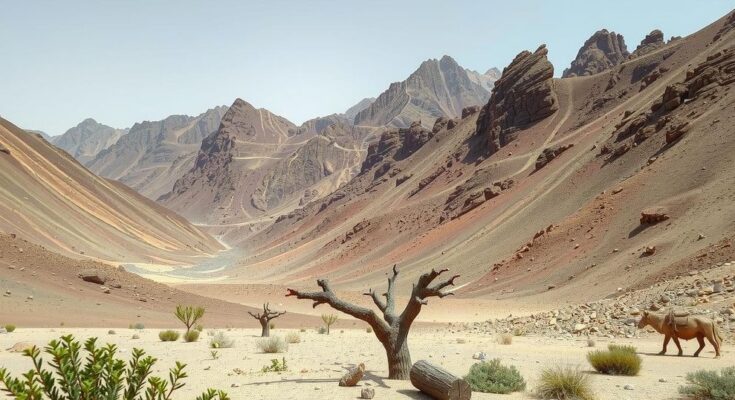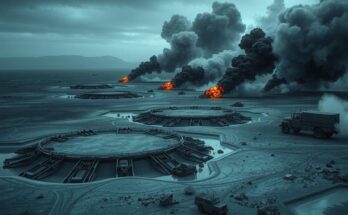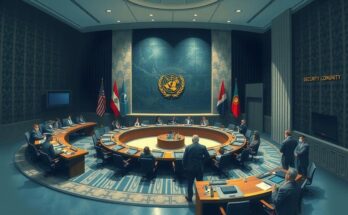The solar year 1403 marks continued political isolation for the Islamic Emirate of Afghanistan, with no international recognition. The year sees ongoing sanctions and pressures, despite claims of progress in economic and diplomatic relations. Significant events included high-level diplomatic visits, a call from the Foreign Minister to improve relations with Pakistan, and the transfer of prisoners from Iran. The IEA sees 1403 as a year of achievements while acknowledging the complexities of its legitimacy and humanitarian issues.
The Islamic Emirate of Afghanistan (IEA) has entered solar year 1403 (March 21, 2024 to March 20, 2025) amidst ongoing political isolation and lack of international recognition. The United Nations continues to withhold Afghanistan’s seat and no nation has yet acknowledged the IEA government. Compounding these challenges, Karim Khan, the Prosecutor of the International Criminal Court, has initiated a request for the arrest of top IEA leaders.
Despite these setbacks, the IEA claims significant progress in various sectors, asserting that improved relations with numerous countries can be construed as a form of recognition. The government underscores that meeting international expectations such as establishing an inclusive government and respecting human rights are essential for global legitimacy.
Notably, international sanctions and pressures remain in effect, limiting the IEA’s ability to operate effectively. This past year saw high-level delegations visiting Afghanistan while IEA representatives traveled abroad. Of particular importance was a visit from Iran’s Foreign Minister, which has been framed as a new beginning for bilateral relations.
The year 1403 also marked a return of former Afghan officials and lawyers who fled the country during the government collapse. However, the IEA cabinet continues to function in a caretaker capacity. The Supreme Leader, Hibatullah Akundzada, has publicly encouraged local officials to prioritize serving the populace.
The IEA contends that 1403 was a noteworthy year in terms of economic growth, boasting a stable afghani currency, improvements in trade, and new investments. Major infrastructure projects, including dam completions and the initiation of the TAPI project, contribute to this narrative.
Amid these developments, the Minister of Foreign Affairs, Amir Khan Muttaqi, urged Pakistan’s government to cease actions detrimental to ordinary people, particularly following the lengthy closure of the Torkham border crossing, which severely impacted trade. Calls for resolving issues with Pakistan through dialogue rather than conflict were emphasized.
Additionally, a prisoner transfer initiative has been executed, returning Afghan detainees from Iran to complete their sentences at home. Economic analysts point to the frozen foreign reserves and ongoing sanctions, but the IEA claims to envision a promising economic future despite these adversities.
Despite the challenges of political isolation and economic hurdles, the Islamic Emirate remains optimistic regarding its developmental strides and the hope for future international recognition and collaboration.
The solar year 1403 has presented the Islamic Emirate of Afghanistan with a continuous challenge regarding political isolation and lack of international recognition. Despite this, the IEA has communicated its socio-economic achievements and the strengthening of international relations with various countries. High-level diplomatic exchanges have occurred, showcasing the IEA’s efforts to engage with the international community. Nonetheless, the pressing issues of sanctions, unrecognized governance, and humanitarian concerns continue to overshadow these advancements, encapsulating the complexity of Afghanistan’s current standing in the global arena.
Original Source: www.ariananews.af




